-
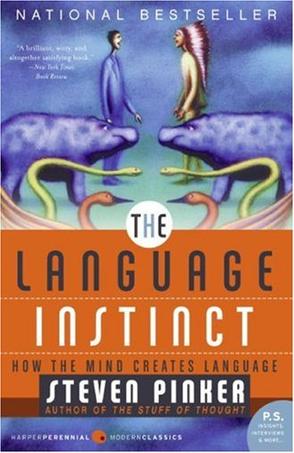
The Language Instinct
In this classic, the world's expert on language and mind lucidly explains everything you always wanted to know about language: how it works, how children learn it, how it changes, how the brain computes it, and how it evolved. With deft use of examples of humor and wordplay, Steven Pinker weaves our vast knowledge of language into a compelling story: language is a human instinct, wired into our brains by evolution. The Language Instinct received the William James Book Prize from the American Psychological Association and the Public Interest Award from the Linguistics Society of America. This edition includes an update on advances in the science of language since The Language Instinct was first published. -
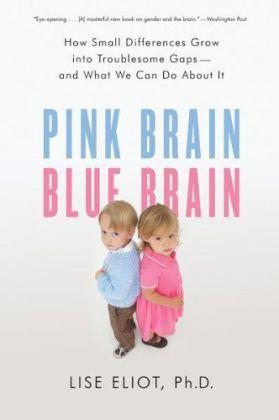
Pink Brain, Blue Brain
In the past decade, we've heard a lot about the innate differences between males and females. So we've come to accept that boys can't focus in a classroom and girls are obsessed with relationships: "That's just the way they're built.""" In "Pink Brain Blue Brain," neuroscientist Lise Eliot turns that thinking on its head. Calling on years of exhaustive research and her own work in the field of neuroplasticity, Eliot argues that infant brains are so malleable that small differences at birth become amplified over time, as parents and teachers--and the culture at large--unwittingly reinforce gender stereotypes. Children themselves exacerbate the differences by playing to their modest strengths. They constantly exercise those "ball-throwing" or "doll-cuddling" circuits, rarely straying from their comfort zones. But this, says Eliot, is just what they need to do. And she offers parents and teachers concrete ways to help. Presenting the latest science from birth to puberty, she zeroes in on the precise differences between boys and girls, erasing harmful stereotypes. Boys are not, in fact, "better at math" but at certain kinds of spatial reasoning. Girls are not naturally more empathetic; they're allowed to express their feelings. By appreciating "how" sex differences emerge--rather than assuming them to be fixed biological facts--we can help all children reach their fullest potential, close the troubling gaps between boys and girls, and ultimately end the gender wars that currently divide us. -

脑的阅读
千百年来,眼睛扫视书页,并唤起脑中的整个阅读过程,这种看似简单实则非常复杂的脑机制一直是一个难解之谜。我们对阅读的行为已经习以为常,而忘记了它是一项非常惊人的成就。白纸上的一个个黑色符号是如何引发一系列的声音以及意义的呢?我们的大脑皮层是上百万年演化的结果,我们原本的生存环境中并不存在书写与阅读,但灵长类的脑又是如何演化出识别单词和符号的能力的呢? 法国科学院院士、著名认知神经科学家斯坦尼斯拉斯?迪昂根据他在人脑阅读方面卓有成效的研究,破解了这个谜团,向我们展示了人脑神奇阅读能力是如何形成的。迪昂在大量实证研究的基础上,全新地看待脑阅读机制与文化的思想深刻地改变了我们对教育和学习的观点,史无前例地引领着我们探索人类的能力。 -
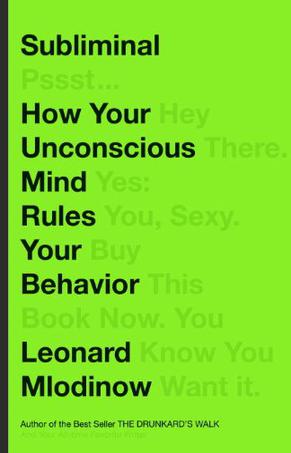
Subliminal
Leonard Mlodinow, the best-selling author of The Drunkard’s Walk and coauthor of The Grand Design (with Stephen Hawking), gives us a startling and eye-opening examination of how the unconscious mind shapes our experience of the world and how, for instance, we often misperceive our relationships with family, friends, and business associates, misunderstand the reasons for our investment decisions, and misremember important events. Your preference in politicians, the amount you tip your waiter—all judgments and perceptions reflect the workings of our mind on two levels: the conscious, of which we are aware, and the unconscious, which is hidden from us. The latter has long been the subject of speculation, but over the past two decades researchers have developed remarkable new tools for probing the hidden, or subliminal, workings of the mind. The result of this explosion of research is a new science of the unconscious and a sea change in our understanding of how the subliminal mind affects the way we live. Employing his trademark wit and lucid, accessible explanations of the most obscure scientific subjects, Leonard Mlodinow takes us on a tour of this research, unraveling the complexities of the subliminal self and increasing our understanding of how the human mind works and how we interact with friends, strangers, spouses, and coworkers. In the process he changes our view of ourselves and the world around us. -
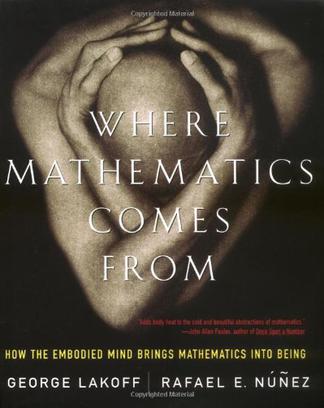
Where Mathematics Come From
Renowned linguist George Lakoff pairs with psychologist Rafael Nuñez in the first book to provide a serious study of the cognitive science of mathematical ideas. This book is about mathematical ideas, about what mathematics means-and why. Abstract ideas, for the most part, arise via conceptual metaphor-metaphorical ideas projecting from the way we function in the everyday physical world. Where Mathematics Comes From argues that conceptual metaphor plays a central role in mathematical ideas within the cognitive unconscious-from arithmetic and algebra to sets and logic to infinity in all of its forms. -
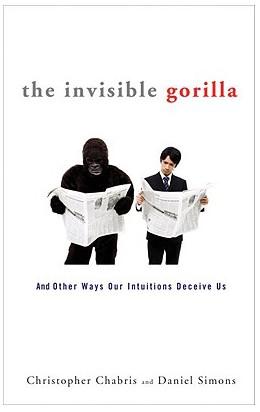
The Invisible Gorilla
Product Description Reading this book will make you less sure of yourself—and that’s a good thing. In The Invisible Gorilla, Christopher Chabris and Daniel Simons, creators of one of psychology’s most famous experiments, use remarkable stories and counterintuitive scientific findings to demonstrate an important truth: Our minds don’t work the way we think they do. We think we see ourselves and the world as they really are, but we’re actually missing a whole lot. Chabris and Simons combine the work of other researchers with their own findings on attention, perception, memory, and reasoning to reveal how faulty intuitions often get us into trouble. In the process, they explain: • Why a company would spend billions to launch a product that its own analysts know will fail • How a police officer could run right past a brutal assault without seeing it • Why award-winning movies are full of editing mistakes • What criminals have in common with chess masters • Why measles and other childhood diseases are making a comeback • Why money managers could learn a lot from weather forecasters Again and again, we think we experience and understand the world as it is, but our thoughts are beset by everyday illusions. We write traffic laws and build criminal cases on the assumption that people will notice when something unusual happens right in front of them. We’re sure we know where we were on 9/11, falsely believing that vivid memories are seared into our minds with perfect fidelity. And as a society, we spend billions on devices to train our brains because we’re continually tempted by the lure of quick fixes and effortless self-improvement. The Invisible Gorilla reveals the myriad ways that our intuitions can deceive us, but it’s much more than a catalog of human failings. Chabris and Simons explain why we succumb to these everyday illusions and what we can do to inoculate ourselves against their effects. Ultimately, the book provides a kind of x-ray vision into our own minds, making it possible to pierce the veil of illusions that clouds our thoughts and to think clearly for perhaps the first time.